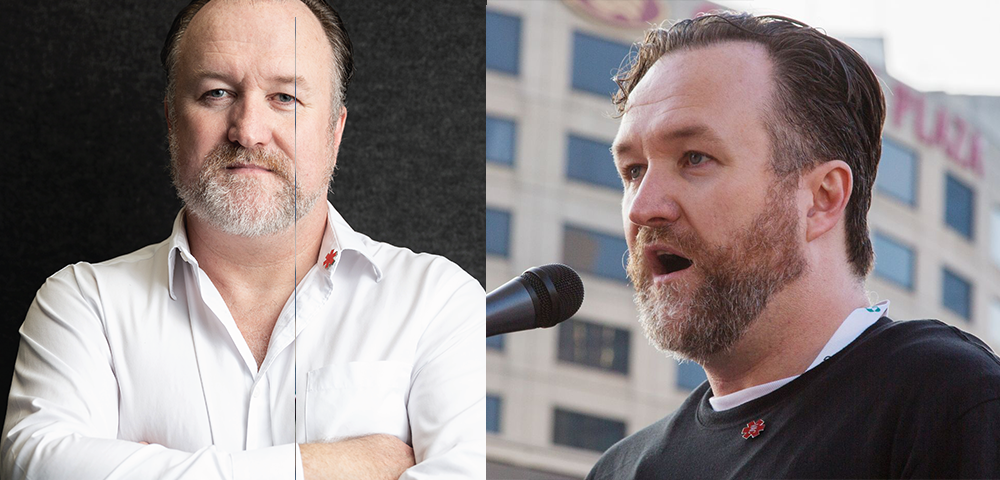
Delay in government ice spending will impact gay community: AIDS council

A DELAY on state government spending to target ice and HIV transmission among same-sex attracted men will affect the gay community at a critical period, according to the Victorian AIDS Council.
Weeks prior to the beginning of its caretaker period, the former Coalition government in Victoria promised $160,000 to the Victorian AIDS Council (VAC) for peer education around HIV transmission and ice use, but advice from the Department of Health has since put the spending on hold.
“Minister Wooldridge at the time specifically told me that this was not an election promise, this was guaranteed funding,” VAC chief executive Simon Ruth told the Star Observer.
“We’ve since been advised by the Department of Health that it’s on hold, and they’re waiting to find out what the new minister, who is also the Minister for Equality, is hoping to do with the funds… we haven’t been told the money is gone, but we’ve been told we can’t move on it yet.”
Ruth said while it is common for election commitments to disappear if a party doesn’t win government, in 20 years of managing health services he has never seen money disappear that he “thought was guaranteed”.
More details on ice spending are expected to emerge out of the Labor Government’s ice action taskforce, which is currently developing an ice action plan in line with Labor’s first-100-days election commitment.
Premier Daniel Andrews and Equality Minister Martin Foley are both on the taskforce, announced as an election commitment by Labor last year amidst a wave of media attention on the drug’s impact on the community.
The funding promised to VAC by the previous government had been earmarked by the organisation for a range of peer-based health promotion projects, including public forums and facilitated peer groups.
Ruth said the delay has hit at a critical period for drug use in the gay community — summer festival season.
“We’re going to miss a period that we know is high is party drug use, when all the festivals are occurring,” he said.
“We know that there’s high levels of use across that period. So, it’s just really just put off a lot of that planning and a lot of those interventions.”
Despite the freeze Ruth said VAC is continuing to run its alcohol and other drugs (AOD) program and a number of one-off events throughout Midsumma, pulling funding from elsewhere in the organisation.
Foley called the funding promised to VAC by the previous government for ice-related programs “a cruel hoax”, and said the LGBTI community was still a priority for Labor’s ice action taskforce.
“In its final week of office, the former Liberal government desperately promised drug funding it knew it could not deliver,” Foley told the Star Observer.
“None of this promised money was actually allocated via funding and services agreements. It wasn’t real money. It was a cruel hoax by the Liberals to make them appear to be topping up earlier cuts they had inflicted on agencies.”
He said the LGBTI community was a “key focus” in the taskforce’s terms of reference, and that the government was on track to deliver its action before the end of March.
“The Andrews Labor Government is committed to fighting ice addiction and recognises the significance of the ice threat to the LGBTI community,” Foley said.
“We will offer a whole-of-government response to help LGBTI Victorians with this crisis.”
Shadow Health Minister Mary Wooldridge made the original funding announcement of $160,000 for VAC as part of a package of measures around ice, and told the Star Observer it was signed off by treasury as a decision of government.
“It was fully budgeted and put into the budget prior to the election… it was a decision of government, it wasn’t a promise,” she said.
“All of that funding was approved by treasury, so it’s all been fully funded, so there’s no issue about that.”
Prahran state Greens MP Sam Hibbins said the over-representation of LGBTI people when it comes to “risky drug use” meant the government needed to commit spending to specifically addressing the issue within that community.
“If the government’s fair dinkum about tackling ice, or tackling the drug issue, then we need not just a specific plan for the LGBTI community but also specific funding, both for treatment and services, but also for prevention and harm minimisation,” he told the Star Observer.
Ruth said targeted spending for the gay, lesbian and trans* communities was vital, because large-scale public campaigns around ice were unlikely to impact those groups.
“They generally target young people — and young heterosexual people — and so they’re missing the older gay man who’s using it 20 times the rate of older men in the general community, it’s missing the peer-based use that we’re seeing in the lesbian community and the gay men’s community, it’s missing the party and play-type use and the chem-sex use,” he said.
“Large-scale, broad-based advertising campaigns that say ‘don’t do drugs’ are not seen to be particularly effective… Those campaigns have very little impact on our community because they don’t address the drug norms within our community.”
Ruth argued that while the overall media coverage of the issue has been sensationalist, sections of the LGBTI community do have specific issues arising from the drug that need to be addressed.










i couldn’t read the article because of the two advertising banners on either side of the page that i couldn’t shift.